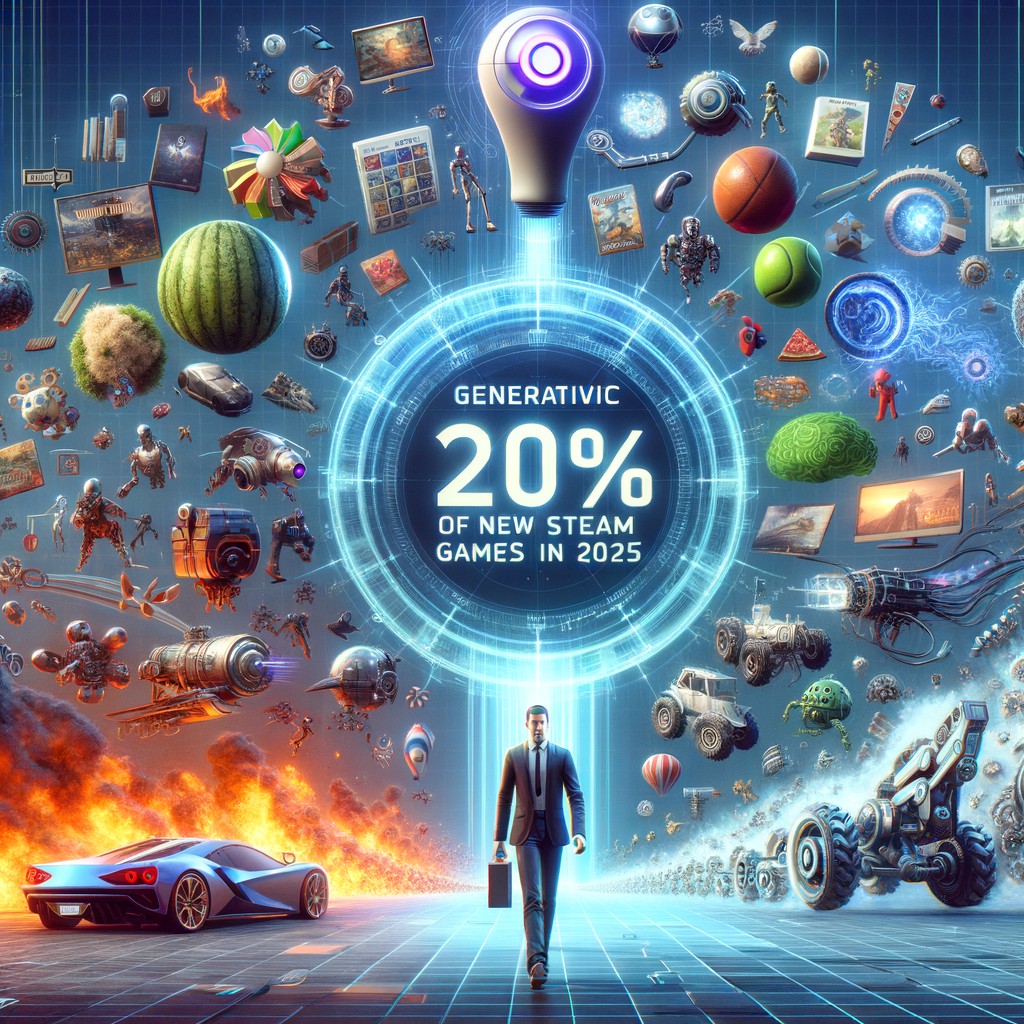Introduction
In the rapidly evolving landscape of video game development, generative AI has emerged as a transformative force. By mid-2025, nearly 20% of newly released titles on Steam, the world’s largest digital distribution platform for PC gaming, incorporate generative AI in various capacities. These applications range from visual asset creation to narrative and audio tools, marking a significant technological shift. This surge represents an eightfold increase from the previous year, igniting debates around creativity, ethics, and the future of game development.
The Rise of Generative AI in Gaming
Historical Context
The incorporation of generative AI in gaming isn’t an overnight phenomenon. It traces back to the early 2020s when developers began experimenting with AI-generated content to streamline production processes and enhance gameplay experiences. However, it wasn’t until the mid-2020s that the technology matured enough to be widely adopted, thanks to advancements in AI models and the growing accessibility of AI tools.
Current Impact
In 2025, generative AI is revolutionizing the way games are developed and experienced. Approximately 7% of all games available on Steam now include GenAI elements, a stark increase from previous years. This is largely attributed to the democratization of AI technologies, allowing even indie developers to leverage sophisticated tools once reserved for major studios. The integration of AI has led to more dynamic and immersive gaming experiences, with procedural content generation and adaptive storytelling becoming standard features in many new releases.
Applications of Generative AI in Game Development
Visual Asset Creation
Generative AI’s impact is most visible in the realm of visual asset creation. Developers use AI to generate textures, environments, and character designs, significantly reducing the time and cost associated with traditional methods. This technology allows for high levels of detail and realism, enhancing the aesthetic appeal of games.
Narrative and Storytelling
AI-driven narrative tools are enabling developers to craft complex, branching storylines that adapt to player choices in real-time. This level of interactivity was once a daunting task, requiring extensive scripting and development resources. With AI, stories can now evolve dynamically, offering players a unique experience with each playthrough.
Audio and Soundscapes
Generative AI is also reshaping the soundscapes of games. AI tools can compose music, create ambient sounds, and generate voiceovers, providing rich auditory experiences that complement the visual and narrative elements. This is particularly beneficial for smaller studios that may lack the resources to hire dedicated composers or voice actors.
Benefits and Challenges
Advantages
- Cost-Effectiveness: By automating aspects of the development process, generative AI reduces production costs, making game development more accessible to smaller studios and independent developers.
- Innovation: AI enables developers to experiment with new ideas, leading to innovative gameplay mechanics and unique player experiences.
- Scalability: Generative AI allows for the rapid generation of content, making it easier to scale games and offer expansive worlds.
Ethical and Creative Concerns
Despite its advantages, the rise of generative AI in gaming has sparked significant debate. Critics argue that AI-generated content lacks the human touch and creativity inherent in traditional game development. There are also ethical concerns regarding the use of AI-generated assets, particularly in terms of copyright and the potential for AI to replicate existing works without proper attribution.
The Future of Game Development
Industry Trends
As generative AI continues to evolve, its role in game development is expected to grow even further. Industry experts predict that by 2030, AI will become an integral component of the game development pipeline, with nearly every new title featuring some form of AI integration.
Player Expectations
Players are becoming increasingly sophisticated, demanding more personalized and immersive experiences. Generative AI is uniquely positioned to meet these expectations by offering dynamic, player-driven narratives and worlds that feel alive and responsive.
Conclusion
The integration of generative AI in game development represents a paradigm shift that is reshaping the industry. While there are valid concerns regarding creativity and ethics, the benefits of AI in terms of innovation, cost-effectiveness, and scalability are undeniable. As we move forward, the challenge will be to balance technological advancements with the preservation of the creative spirit that defines gaming.
Generative AI, Steam games, game development, AI in gaming, procedural content generation, AI storytelling, AI audio tools, gaming industry trends, video game innovation, gaming ethics





